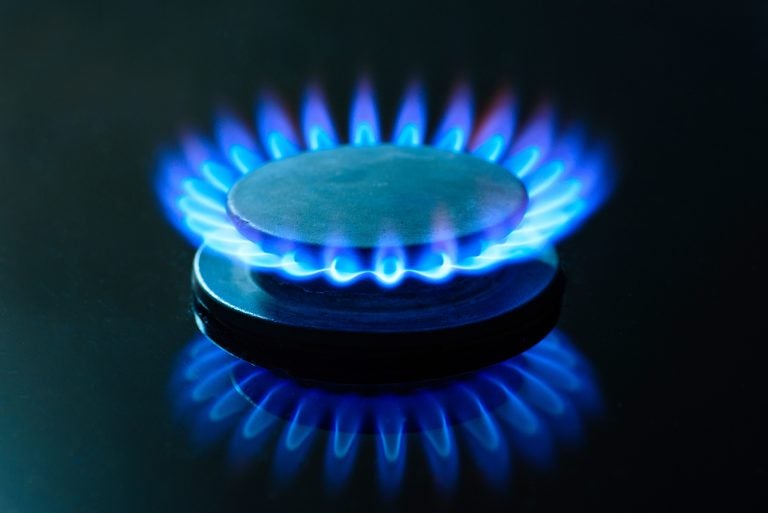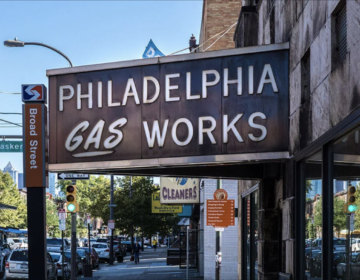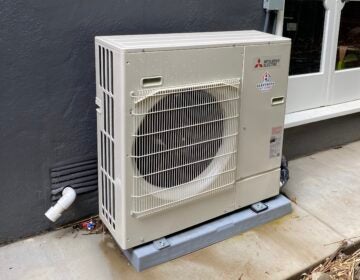Philadelphians can opt for renewable natural gas come January
The Energy Co-op is expanding its renewable natural gas service area to Philadelphia. The fuel comes from methane captured at landfills.

The Energy Co-op is expanding its renewable natural gas service area to Philadelphia. The fuel comes from methane captured at landfills. (Bigstock/JKLS photography)
Philadelphia residents can choose different suppliers for natural gas to cook with and heat their homes. But if their choice is renewable natural gas, they’ve had no options.
Until now. Starting in January, everyone in the city will be able to opt for renewable gas.
“We’ve been working with PGW over the last several months to finally bring renewable natural gas to the PGW service territory here in Philadelphia,” said Ronald Fisher, who heads the Energy Co-op, a nonprofit cooperative that’s turning 40 this year.
The Energy Co-op, which has supplied the Philadelphia region with renewable electricity for 20 years, became the first provider of renewable natural gas locally in 2015, but only for Peco natural-gas customers living outside the city.
Conventional natural gas is a fossil energy source that comes from deep underground wells. Renewable natural gas is cleaner because it mostly comes from waste decomposing at landfills, sewage plants, or biodigesters that release methane into the atmosphere. Methane, a potent greenhouse gas that traps about 30 times more heat than carbon dioxide, can be captured and burned or flared, or can be reused as energy.
The Energy Co-op only buys renewable natural gas from landfills located in different states. Buying energy from them also works as an incentive for landfills to capture methane, Fisher said.
“Instead of flaring landfill gas, we’re going to be putting it to good use. By putting it to good use, we’re leaving natural gas in the ground, so it doesn’t need to be fracked for, it doesn’t need to be drilled for, so we’re avoiding that and more environmental damage,” Fisher said.
Currently, Philadelphia residents can choose both their electricity and gas suppliers, prioritizing cost-saving or clean energy. Regardless of the supplier, in Philadelphia electricity is distributed by Peco and gas is distributed by Philadelphia Gas Works.
Switching to renewable natural gas doesn’t imply any physical conversion of appliances or gas lines. Customers in the PGW service area just need to sign up with the co-op or go to the natural gas shopping website of the Pennsylvania Public Utility Commission.
The only place customers will notice a difference will be on their bills. The cost of renewable natural gas is, on average, about $15 more per month than conventional natural gas.
“It’s only 50 cents a day, a fraction of the cost of a cup of coffee,” said Fisher.
“Lots of organizations raise money to advance a cause, a message, or a mission,” he added. “We do it not by asking people to donate to us, but by asking people to pay a little more for sustainable energy in the form of renewable electricity and renewable natural gas.”
Philadelphia’s energy roadmap to achieve its goals of reducing citywide carbon emissions 80% by 2050, Powering Our Future: A Clean Energy Vision for Philadelphia, mentions the need for switching to lower carbon energy sources such as renewable natural gas.
Adam Agalloco, Philadelphia’s energy manager, said the city uses natural gas as a primary source for heating. By having residents switching to RNG, the city could advance on its climate goals.
“It’s exciting because it’s new and it’s an offering that I think addresses a need we have as a city for lower or carbon-free thermal energy, which is a real challenge for a cold-weather city like Philadelphia,” Agalloco said.
Those who already get renewable electricity from the Energy Co-op will be able to get renewable gas starting in November. Others in Philadelphia will be able to opt for the service starting in January.
WHYY is your source for fact-based, in-depth journalism and information. As a nonprofit organization, we rely on financial support from readers like you. Please give today.







